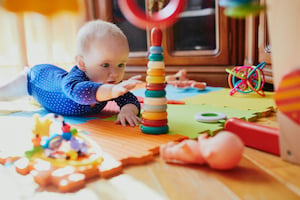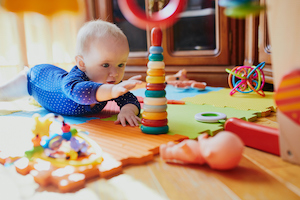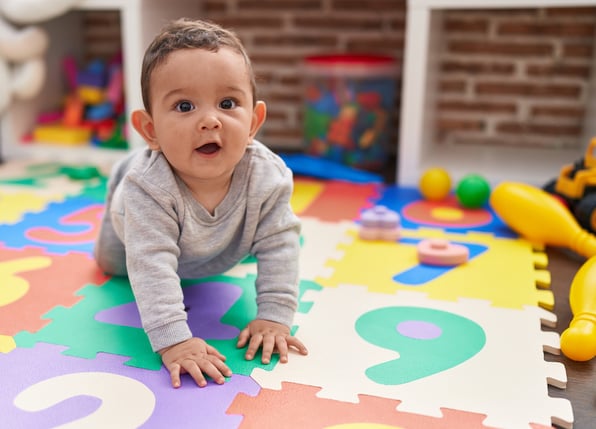 “The environments infants and toddlers encounter, the relationships they form, and the activities they engage in before age 3—both inside the home and out—are key to healthy and positive growth, development and learning outcomes that can last a lifetime.” (National Association for the Education of Young Children)
“The environments infants and toddlers encounter, the relationships they form, and the activities they engage in before age 3—both inside the home and out—are key to healthy and positive growth, development and learning outcomes that can last a lifetime.” (National Association for the Education of Young Children)
The National Association for the Education of Young Children (NAEYC) strongly recommends continuity of care (COC) for infants and toddlers. This means that these young children will have their care provided by a consistent group of caregivers for at least two to three years. This allows them to feel secure and helps them to thrive, which means they can learn to trust and engage with caregivers and other young children outside of their family — a key step of socialization.
The Benefits of Infant Care
Although no two caregivers will engage in the exact same activities with your infant, quality professionals will focus on developmentally appropriate ones. For example, as noted by FamilyEducation.com, the American Academy of Pediatrics (AAP) recommends that infants get plenty of time on their tummies when alert enough to play.
More specifically, as the infant is placed on their stomach for three to five minutes three times a day — or more if the activity appears to be pleasurable — this strengthens the infant’s upper body muscles, including the neck. As the infant gains strength, age-appropriate toys can be placed in front of them to encourage reaching. This leads to crawling, which opens up a whole new world for the infant!
This resource also notes the importance of helping infants to develop a sense of humor. Just like older children and adults, infants will have unique ideas about what is especially funny — and infant care professionals will discover what silly things make an infant laugh, and then repeat them and try out other similar activities. It can be as simple as the caregiver putting on a funny hat or making silly faces.
Here’s one more piece of information from Family Education. At infant child care, your baby can learn to explore different textures in a safe environment. This can be the nub of a rug or the smooth feeling of a door. As your infant touches different items and feels ones that are both alike and different, they receive more cues about their world.
Finding the Right Infant Care Center
Some tips on choosing the right center for your baby include:
- Asking about safety: How does the child care center create and maintain a safe environment?
- Neat and clean environment: Cleanliness is more important now than ever before, and you’ll also want to choose a tidy center that gives your infant space to safely explore.
- Engaging caregivers: They will be playing a key role in helping your baby to grow, develop and thrive, so spend time with them. How do they interact with you? When you observe them with another infant, how well do they engage?
- Licensing and accreditation: be sure to ask about these credentials for the center you choose.
Horizon Education Centers: Infant Care
At Horizon, we recognize how important infant child care is to create an important foundation for that child’s growth. At our centers, each child is assigned a primary caregiver for tailored care and unique experiences, someone who will serve as the main contact point for your parent/staff partnership.
We offer a creative curriculum and engaging experiences provided by experienced teachers in a sensory-rich environment that includes developmentally appropriate toys.
We are continuing to add our infant care services to a growing number of locations. You can register here.








